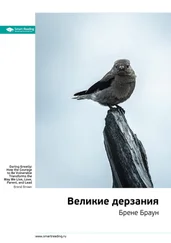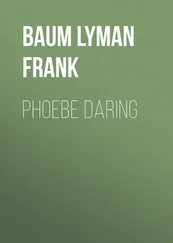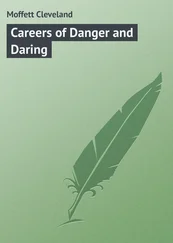Here’s how she explained it: “By definition, entrepreneurship is vulnerable. It’s all about the ability to handle and manage uncertainty. People are constantly changing, budgets change, boards change, and competition means you have to stay nimble and innovative. You have to create a vision and live up to that vision. There is no vision without vulnerability.”
Knowing that Gay spends a considerable amount of time teaching and mentoring, I asked her what advice she gives new entrepreneurs about embracing uncertainty. She said, “Success requires entrepreneurs to cultivate strong support networks and good mentors. You need to learn how to shut out the noise so you can get clear on how you feel and what you think, and then you do the hard work. No question—it’s all about vulnerability.”
Another great example of the power of vulnerability—this time in a corporation—is the leadership approach taken by Lululemon’s CEO, Christine Day. In a video interview with CNN Money, Day explained that she was once a very bright, smart executive who “majored in being right.” Her transformation came when she realized that getting people to engage and take ownership wasn’t about “the telling” but about letting them come into the idea in a purpose-led way, and that her job was creating the space for others to perform. She characterized this change as the shift from “having the best idea or problem solving” to “being the best leader of people.”
The shift she described is the shift from controlling to engaging with vulnerability—taking risks and cultivating trust. And while vulnerability can sometimes make us feel powerless, her shift was a total power move. Day has increased the number of stores from 71 to 174, while total revenue has grown from $297 million to almost $1 billion, and Lululemon’s stock is up about 300 percent since its 2007 IPO.
In a written interview with Day accompanying the video, the idea of vulnerability as the birthplace of creativity, innovation, and trust continued to play out—even when it comes to failure and defeat. One of Day’s leadership guideposts is “finding the magic makers.” As Day explained, “Taking responsibility, taking risks, and having an entrepreneurial spirit are qualities we look for in our employees. We want people who bring their own magic. Athletes are great within our culture; they’re used to winning as well as losing. They know how to handle—and fix—defeat.” Day also emphasized the importance of allowing people to make mistakes: “Our golden rule? If you screw up, you clean it up.”
In businesses, schools, faith communities—any system, even families—we can tell a lot about how people engage with vulnerability by observing how often and how openly you hear people saying:
• I don’t know.
• I need help.
• I’d like to give it a shot.
• It’s important to me.
• I disagree—can we talk about it?
• It didn’t work, but I learned a lot.
• Yes, I did it.
• Here’s what I need.
• Here’s how I feel.
• I’d like some feedback.
• Can I get your take on this?
• What can I do better next time?
• Can you teach me how to do this?
• I played a part in that.
• I accept responsibility for that.
• I’m here for you.
• I want to help.
• Let’s move on.
• I’m sorry.
• That means a lot to me.
• Thank you.
For leaders, vulnerability often looks and feels like discomfort. In his book Tribes: We Need You to Lead Us , Seth Godin writes, “Leadership is scarce because few people are willing to go through the discomfort required to lead. This scarcity makes leadership valuable. … It’s uncomfortable to stand up in front of strangers. It’s uncomfortable to propose an idea that might fail. It’s uncomfortable to challenge the status quo. It’s uncomfortable to resist the urge to settle. When you identify the discomfort, you’ve found the place where a leader is needed. If you’re not uncomfortable in your work as a leader, it’s almost certain you’re not reaching your potential as a leader.”
As I looked over the data and read through my notes from the interviews I’ve done with leaders, I wondered what students would say to teachers and what teachers would say to their principals if they had the opportunity to ask for the leadership they needed. I wondered what the customer service representative would say to his boss and what she might ask of her boss. What do we want people to know about us and what do we need from them?
As I started writing down the answers to these questions, I realized that they sounded like a mandate; a manifesto. Here’s what emerged from these questions:
The Daring Greatly Leadership Manifesto
To the CEOs and teachers. To the principals and the managers. To the politicians, community leaders, and decision-makers:
We want to show up, we want to learn, and we want to inspire.
We are hardwired for connection, curiosity, and engagement.
We crave purpose, and we have a deep desire to create and contribute.
We want to take risks, embrace our vulnerabilities, and be courageous.
When learning and working are dehumanized—when you no longer see us and no longer encourage our daring, or when you only see what we produce or how we perform—we disengage and turn away from the very things that the world needs from us: our talent, our ideas, and our passion.
What we ask is that you engage with us, show up beside us, and learn from us.
Feedback is a function of respect; when you don’t have honest conversations with us about our strengths and our opportunities for growth, we question our contributions and your commitment.
Above all else, we ask that you show up, let yourself be seen, and be courageous. Dare Greatly with us.
You can find a printed copy of this manifesto on my website (www.brenebrown.com).
Chapter 7
Wholehearted Parenting: Daring to Be the Adults We Want Our Children to Be
Who we are and how we engage with the world are much stronger predictors of how our children will do than what we know about parenting. In terms of teaching our children to dare greatly in the “never enough” culture, the question isn’t so much “Are you parenting the right way?” as it is: “Are you the adult that you want your child to grow up to be?”
PARENTING IN A CULTURE OF NEVER ENOUGH
Most of us would love a color-coded parenting handbook that answers all of our unanswerable questions, comes with guarantees, and minimizes our vulnerability. We want to know that if we follow certain rules or adhere to the method espoused by a certain parenting expert, our children will sleep through the night, be happy, make friends, achieve professional success, and stay safe. The uncertainty of parenting can bring up feelings in us that range from frustration to terror.
Our need for certainty in an endeavor as uncertain as raising children makes explicit “how-to-parent” strategies both seductive and dangerous. I say “dangerous” because certainty often breeds absolutes, intolerance, and judgment. That’s why parents are so critical of one another—we latch on to a method or approach and very quickly our way becomes the way. When we obsess over our parenting choices to the extent that most of us do, and then see someone else making different choices, we often perceive that difference as direct criticism of how we are parenting.
Ironically, parenting is a shame and judgment minefield precisely because most of us are wading through uncertainty and self-doubt when it comes to raising our children. After all, we rarely engage in self-righteous judgment when we feel confident about our decisions: I’m not going to practically knock myself unconscious with a shaming eye roll about your nonorganic milk if I feel good about what I’m feeding my children. But if doubt lurks beneath my choices, that self-righteous critic will spring to life in not-so-subtle parenting moments that happen because my underlying fear of not being the perfect parent is driving my need to confirm that, at the very least, I’m better than you.
Читать дальше
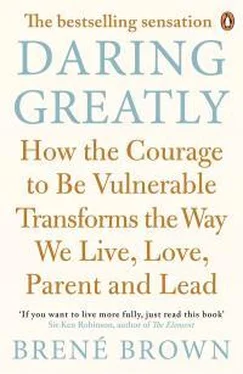


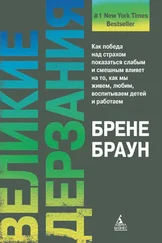


![Брене Браун - Вопреки. Как оставаться собой, когда всё против тебя [litres]](/books/436389/brene-braun-vopreki-kak-ostavatsya-soboj-kogda-v-thumb.webp)
